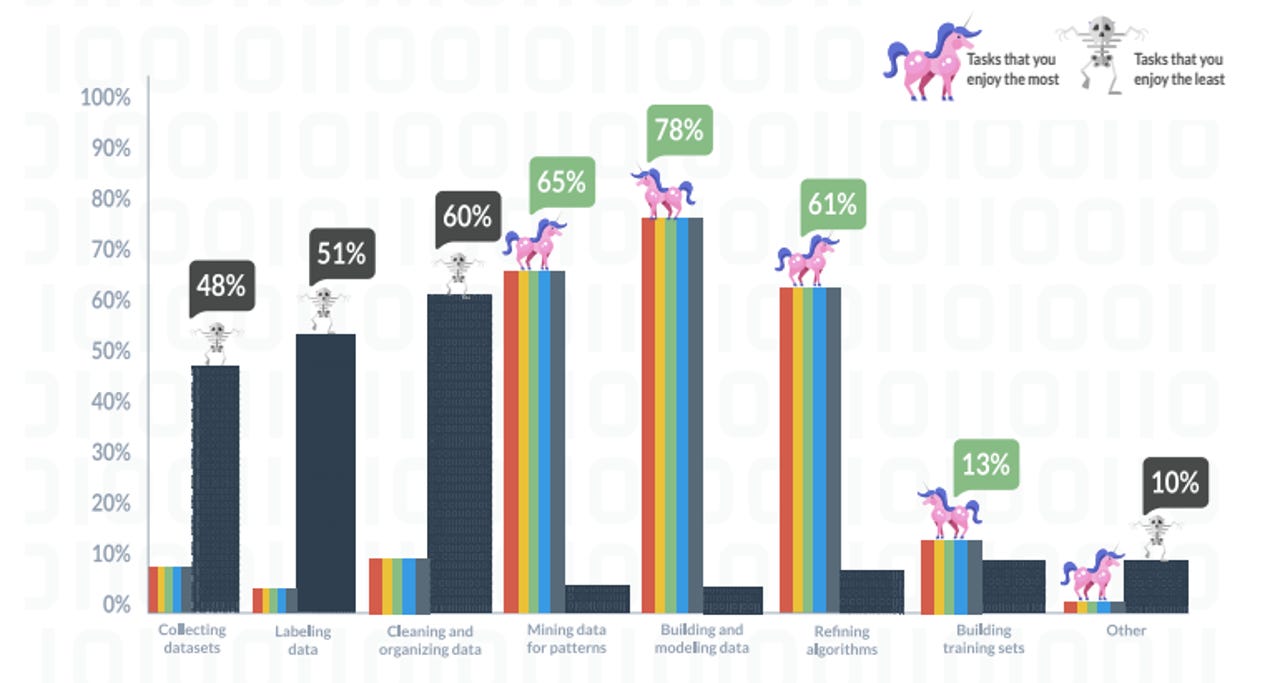Data scientists really love their jobs, survey finds

A new study by AI firm CrowdFlower reveals that a majority of data scientists feel as though they've landed this century's sexiest job. While the sexiness is debatable, it's clear that job satisfaction rates are high within this burgeoning career path.
According to the study, more than 90 percent of data scientists surveyed said they were happy doing their jobs, and nearly 50 percent said they were thrilled.
Data scientists are effectively the human engine behind today's most pivotal technologies, including artificial intelligence, machine learning, and algorithms and analytics. This report suggests most practicing data scientists are well aware of their importance and relish the job stability.
Nearly 90 percent of data scientists are contacted at least once a month for new job opportunities, more than 50 percent are contacted on a weekly basis, and 30 percent are contacted several times a week, according to the study's findings.
Interestingly, there's a disconnect between job satisfaction and the tasks that data scientists spend most of their time doing. The study found that data scientists are spending an inordinate amount of time on the tasks they dislike the most and little time on activities they enjoy.
Data scientists say they are happiest doing cerebral tasks, such as building and modeling data, mining data for patterns, and refining algorithms. However, the bulk of a data scientist's work day is spent on so-called janitorial tasks, which include cleaning and organizing data, labeling data, and collecting data sets.

According to the survey results, data scientists are cool with the the grunt work because they believe in the importance of their contributions, particularly as it relates to quality training data. In AI systems, training data is used discover predicative relationships necessary for learning. Data scientists agree that a lack of high quality training data is the single biggest reason AI systems fail. What's more, data scientists worry that the wrong training data could bias an AI system with human prejudices.
"There is a tremendous amount of hard work that is needed to make an AI system deliver on its promise and at the core is getting the training data right," said Robin Bordoli, CEO of CrowdFlower.
"Cleaning, labeling and categorizing data isn't sexy or fun, but it's critical," Bordoli continued. "Data scientists know it and that's why they are spending the bulk of their time doing the work they hate. The reality is that algorithms are far from perfect, however, with higher quality training data -- created by human intelligence -- we can generate business value even with these imperfect algorithms."
According to CrowdFlower, the key for data scientists in the future will be finding ways to offload routine work and streamline processes in the face of increasing data, increasing AI projects and a continued shortage of skilled data workers.
Microsoft bets big on DNA storage for digital data